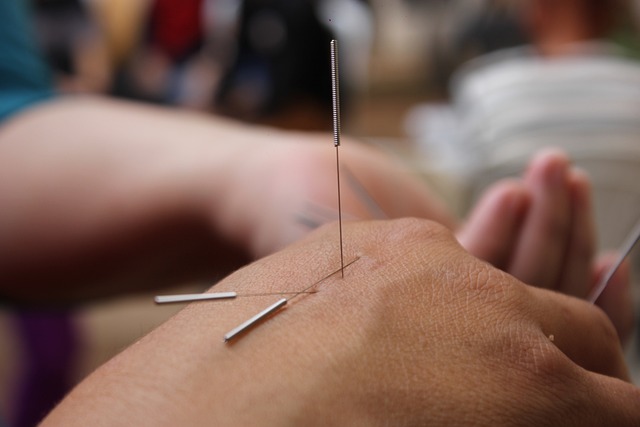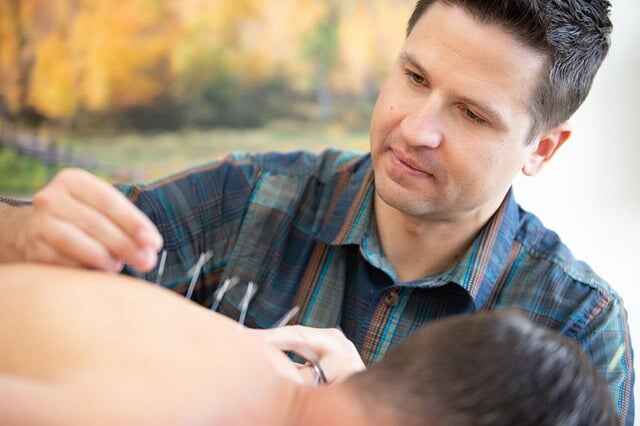Acupuncture is a traditional Chinese treatment used to treat many health concerns and symptoms, such as pain. Acupuncture is a treatment that involves inserting very tiny steel needles into your skin to stimulate certain spots on your body, such as your back, neck, head, and face.
Acupuncture is used to treat a health problem or symptom, such as pain. Acupuncturists use extremely small steel needles to put into your skin at various “acupoints.” The needles regulate your body’s energy, or qi, and stimulate the release of natural substances to combat the ailment or symptom. Acupuncture is primarily used as a complementary therapy. Other medical treatments may be required to help alleviate your health problems. (Source)
Also, Read All About Astrocytomas: Types, Symptoms, Causes, Prevention
Here are some key aspects of acupuncture:
What is Acupunture? Principles:
- Meridians and Qi: According to traditional Chinese medicine, the body possesses a network of meridians, or passageways, through which qi flows. When the flow of qi is interrupted or impeded, disease or pain can result.
- Acupoints: Acupoints are precise points along meridians where energy can be accessed and manipulated. Throughout the body, there are hundreds of acupoints, each with its therapeutic characteristics.
Techniques:
- Needle insertions: Acupuncture is performed by inserting tiny, sterilized needles into acupoints on the body. Depending on the treatment plan, the needles often remained in place for a particular amount of time, ranging from a few minutes to many hours.
- Moxibustion: Moxibustion is a treatment that is frequently used in conjunction with acupuncture. It entails heating and stimulating the energy flow by burning a dried plant called moxa near the acupoints.
- Cupping and Gua Sha: Cupping includes placing heated cups on the skin to create a suction effect, whereas Gua Sha requires scraping the skin softly with a smooth-edged tool. These methods are occasionally used in conjunction with acupuncture to increase its effectiveness.

What Does Acupuncture Treat?
Acupuncture is primarily used to reduce pain caused by many kinds of diseases and conditions, including:
- Dental discomfort
- Fibromyalgia
- Tension headaches and migraines
- Labor pain
- Back pain in the lower back
- Neck pain
- Osteoarthritis
- Cramps during menstruation
- Respiratory disorders, such as allergic rhinitis
- Tennis elbow
Benefits and Uses
- Pain Management: Acupuncture is frequently used to treat chronic pain illnesses like fibromyalgia, migraines, back pain, and arthritis.
- Stress reduction and emotional well-being: Acupuncture is believed to help in the balancing of emotions, the reduction of stress, and the promotion of relaxation.
- Digestive Health: It may relieve digestive problems like IBS, acid reflux, and motion sickness.
- Fertility support: As acupuncture may help regulate the menstrual cycle and enhance reproductive health, it is sometimes employed as a supplemental therapy for fertility treatments.
- Other conditions: Various other ailments, such as allergies, sleeplessness, respiratory issues, and anxiety, are also treated with acupuncture. (Source)
Safety and considerations
- Qualified practitioners: Acupuncture should only be conducted by a qualified and licensed acupuncturist who has had proper instruction and is informed about anatomy, clean needle methods, and any contraindications.
- Safety and cleanliness: To reduce the risk of infections or consequences, sterile needle use and good hygiene habits are crucial.
- Individualized Care: Every individual’s requirements are taken into account when designing an acupuncture treatment plan. Before starting treatment, your health state should be carefully evaluated and discussed.
- Side Effects: When conducted by a competent practitioner, acupuncture is generally safe, although some people may experience minor side effects such as brief bruising, discomfort, or dizziness.
Also, Read What is Acupressure: Principle, Techniques, Uses, Benefits, Treatment
Alternative Therapy Acupuncture has shown encouraging outcomes in scientific research for some illnesses, but more research is required to determine its efficacy and mechanisms of action. If you’re thinking about integrating acupuncture into your healthcare routine, it’s crucial to speak with a medical expert and seek treatment from an experienced acupuncturist. (Source) (Source)





